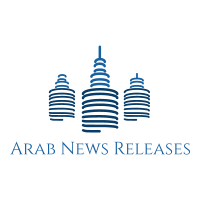DUBAI: His Highness Sheikh Ahmed bin Mohammed bin Rashid Al Maktoum, Second Deputy Ruler of Dubai and Chairman of the Dubai Media Council, said the rapidly changing local and international media landscape calls for a swift overhaul of organisational structures, regulations and legislations relating to the media sector in Dubai so as to keep pace with the rapid changes shaping the industry. His Highness added that such proactive steps would also enable media to convey their message objectively and cater to their audiences in keeping with international best practices and ethical standards.
His Highness’s remarks came as he chaired a meeting at the Dubai Media Council’s headquarters in the presence of Mona Al Marri, Vice Chairperson and Managing Director of the Dubai Media Council, and Nehal Badri, Secretary General of the Council, along with Board members.
Sheikh Ahmed underscored the significance of redoubling efforts to develop a comprehensive blueprint outlining necessary policies to drive the media sector
in Dubai that would help it stay abreast of swift technological advancements and harness breakthrough opportunities.
His Highness said that Dubai’s legislative flexibility stands out as a shining example in the success it has achieved as a global business hub and preferred investment destination. He also highlighted ongoing efforts to develop policies and regulatory frameworks that synchronise with global advancements in the media sector, further cementing Dubai’s leadership position in this domain regionally and globally.
His Highness also directed that the Media Policy Development Plan in Dubai be swiftly implemented, with its accent on three key aspects: policies related to media professions, vital and emerging media sectors, and investment policies. His Highness also highlighted the importance of further bolstering the capabilities of the media economy as it requires a comprehensive set of policies that further support the investment environment, especially in the context of talent development and techn
ological enhancement.
#RamadanInDubai campaign reviewed
Sheikh Ahmed also reviewed the #RamadanInDubai campaign, which was launched on his directives at the start of the Holy Month. The campaign, managed by Brand Dubai, the creative arm of the Government of Dubai Media Office, has added to the glow of festivities in Dubai throughout Ramadan, showcasing seamless coordination between government entities, authorities, institutions, and the private sector. The campaign highlights the importance of commemorating the Blessed Month, with vibrant celebrations across Dubai reaffirming its status as a premier global city to live in and visit. His Highness commended all participants in the campaign for their initiatives, events, and activities that have helped capture the true essence of Ramadan, presenting Dubai in its finest light and honouring Emirati traditions.
Mona Al Marri said that efforts are underway, in accordance with His Highness’s directives, to propel the media sector forward with a keen focus on secto
r governance, preparing legislation and policies, developing human capital, attracting talent, and providing training and upskilling opportunities for local talents. This concerted push aims to empower Dubai’s media to achieve the highest levels of readiness and competitiveness in delivering high-quality content, she added.
Critical role of media highlighted
She also emphasised ongoing efforts, in collaboration with strategic partners, to elevate Dubai’s media competitiveness to global standards. This resonates with Dubai’s aspiration to lead as a global hub for business, innovation, and quality of life. Additionally, she underscored the critical role of media in showcasing Dubai’s dynamism worldwide, aiming for excellence in various domains.
Meanwhile, Nehal Badri emphasised the Council’s commitment to strong governance and adaptable policies to foster confidence, enhance performance, and bolster competitiveness in the media sector. She said that the Council is focused on crafting a resilient framework of
policies that align with the sector’s evolving needs, driven by modern technologies and flexible regulatory frameworks.
This approach aims to promote transparency, accountability, and investment attractiveness, while strengthening risk management, internal controls, talent attraction and retention, thereby supporting sustainable growth, she added.
The meeting was also attended by Hala Youssef Badri, Malek Sultan Al Malek, Abdullah Hameed Balhoul, Younis Abdulaziz Al Nasser, Amal Ahmed bin Shabib, Mohammed Sulaiman Al Mulla, and Dr. Abdullah Mohammed Al Karam.
Source: Emirates News Agency
